Belief and saying “no” to superstition
(Baonghean) - After the press exposed it and the urgent intervention of the authorities, the Vietnam Buddhist Sangha (VBS), Ba Vang Pagoda stopped the activity of summoning spirits to resolve grievances.
However, the story called “Ba Vang” was a real shock, not only affecting the reputation of the Church but also causing confusion in public opinion. From a cultural perspective, the story also raised many issues about the need to clearly distinguish between belief and superstition.
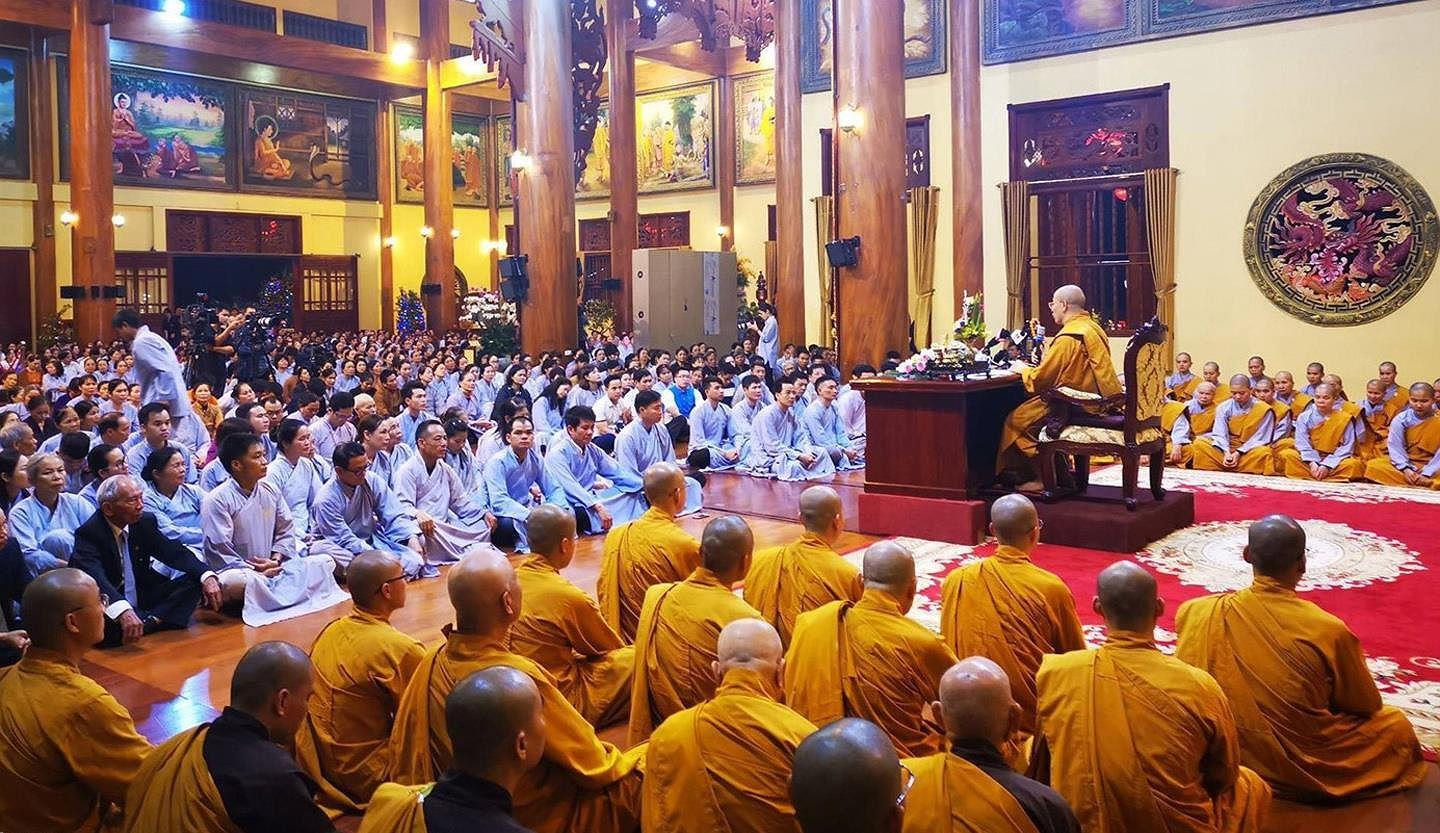 |
| The abbot of Ba Vang Pagoda - Venerable Thich Truc Thai Minh affirmed that the method of inviting "karmic creditors" is the right method... poor families should make offerings to escape poverty. Photo: Vietnam Education Newspaper |
Perhaps until now, even though there have been many analytical opinions from dignitaries leading the Vietnam Buddhist Sangha, cultural and religious researchers... that the act of inviting the dead to resolve the grievances at Ba Vang Pagoda - Quang Ninh is not in accordance with the teachings of Buddhism, perhaps, many people still cannot confirm whether or not there are "spirits"! Because in the past, for Vietnamese people, whenever someone died, they invited the temple to worship the dead. Most pagodas in our country, besides worshiping Buddha, always have an altar for the dead in the back.
That is the altar for Buddhists who have taken refuge or not, but after death, their families "sent" them to the temple so that their loved ones' souls can listen to the sutras day and night to be liberated. The practice of worshiping the dead in Vietnamese temples continues to exist. And if you worship the dead, you must invite them. That is the common belief of the majority of people who believe in Buddhism.
However, Buddhism in the beliefs of the majority of people who go to temples will be different from Buddhism - as a religion of official Buddhists, and even more different from those who have become monks. Saying so to see that, the story of whether there are ghosts or not depends on the concept, on the understanding of each person. Temples that worship and invite ghosts are the harmony of Buddhism in the life of Vietnamese people.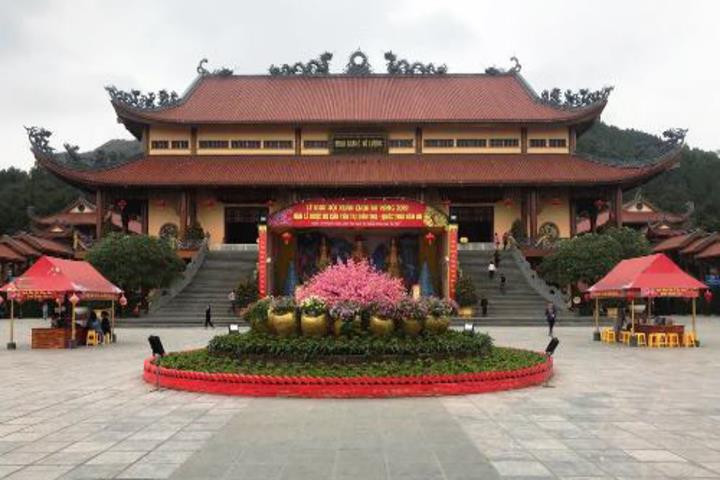 |
| Ba Vang Pagoda is deserted after the "soul summoning" violation. Photo: vnexpress.net |
Buddhism, when introduced into any country, absorbs the indigenous beliefs of that country and uses the Buddhist doctrine as a basis for guidance. Filial piety already existed, and the worship of grandparents and ancestors existed before Buddhism came to Vietnam. Without reconciliation with traditional folk beliefs, Buddhism certainly would not have been able to take root in the lives of the Vietnamese people and develop as it does today.
That's why Venerable Thich Thanh Quyet - Vice President of the Central Executive Council of the Vietnam Buddhist Sangha, when talking about Venerable Thich Truc Thai Minh - abbot of Ba Vang Pagoda, said, "He has not studied Buddhism systematically..., and shows it in a skipping manner."
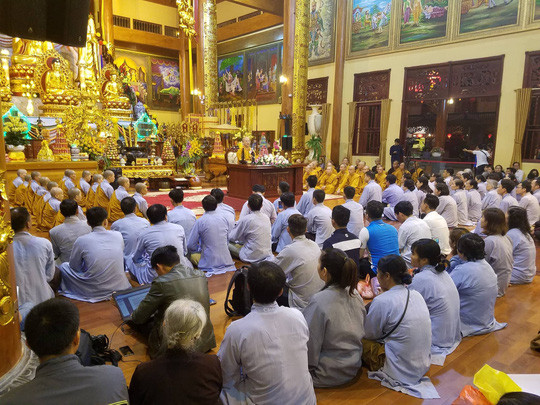 |
| The soul summoning ceremony is still taking place at Ba Vang Pagoda after mixed reactions from the media. Photo: nld.com.vn |
That is to say, worshiping and inviting spirits at the temple is right or wrong, whether there are spirits or not depends on the concept and belief of each person. Whoever believes it is, it is; whoever believes it is not, it is not. However, when Ba Vang Pagoda organizes an invitation for spirits to possess someone to talk, to set a price, to ask for money, even a lot of money, under the form of offering to the temple to absolve sins; turning nothing into something, spreading fear to sick people (both physically and mentally) to get money, causing many people to suffer, it is clear that they know it is wrong but still do it.
No one has the ability to invite the spirit of many past lives to come back and possess a person to talk. Not only is it not in the Buddhist teachings (because Buddha never talked about this), but in terms of worldly morality, no one can practice religion by collecting money like that. Not to mention, no “spirit” (which is non-existent) knows how to spend real money issued by the State Bank!
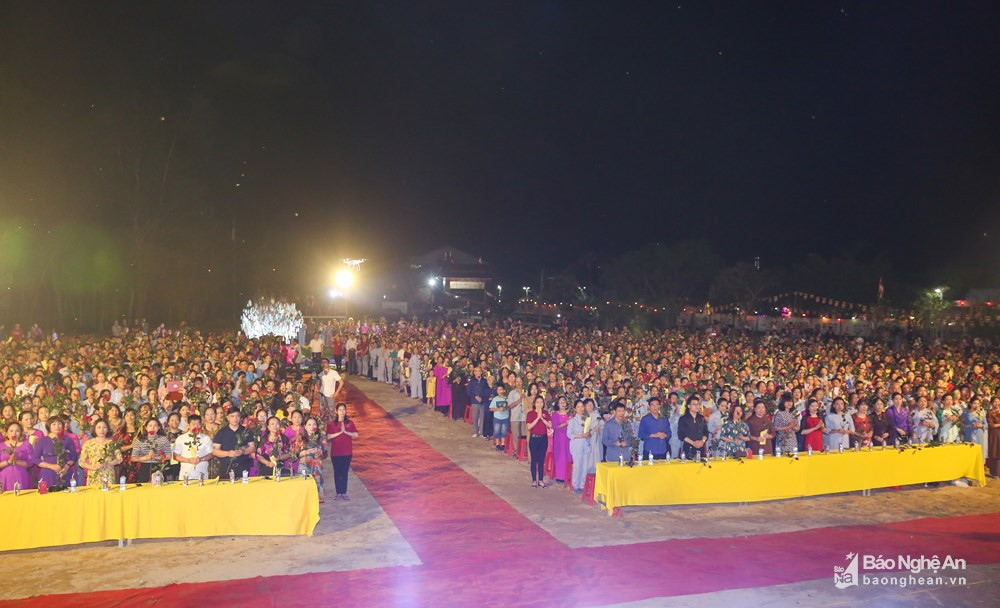 |
| National peace and prosperity ceremony at Duc Hau Pagoda in February 2019. Through the prayer session recited by Venerable Thich Dinh Tue, Buddhists will wish for the best, praying for national peace and prosperity. |
The line between belief, religion and superstition is very difficult to distinguish. Superstition is believing without understanding, believing blindly.
Buddha Shakyamuni said: “Whoever believes in me without understanding me is slandering me.” Buddha is the omnipotent enlightened one. Buddhism advises people to believe with wisdom and experience, not through propaganda, delusion, or following without understanding anything.
From a cultural and ethical perspective, the Vietnamese people have had the custom of worshipping their ancestors since ancient times. It is a very cultural and humane practice. It is the morality of remembering the source of water when drinking water, the filial piety of children and grandchildren towards their parents and grandparents who gave birth to and raised them. In the home, we worship our ancestors, in society, we have the custom of worshipping the National Ancestor and Mother Au Co.The Hung King worship belief was recognized by UNESCO as an Intangible Heritage of Humanity because it is a folk belief with profound meaning about human morality, and is the cultural foundation for the nation to survive.
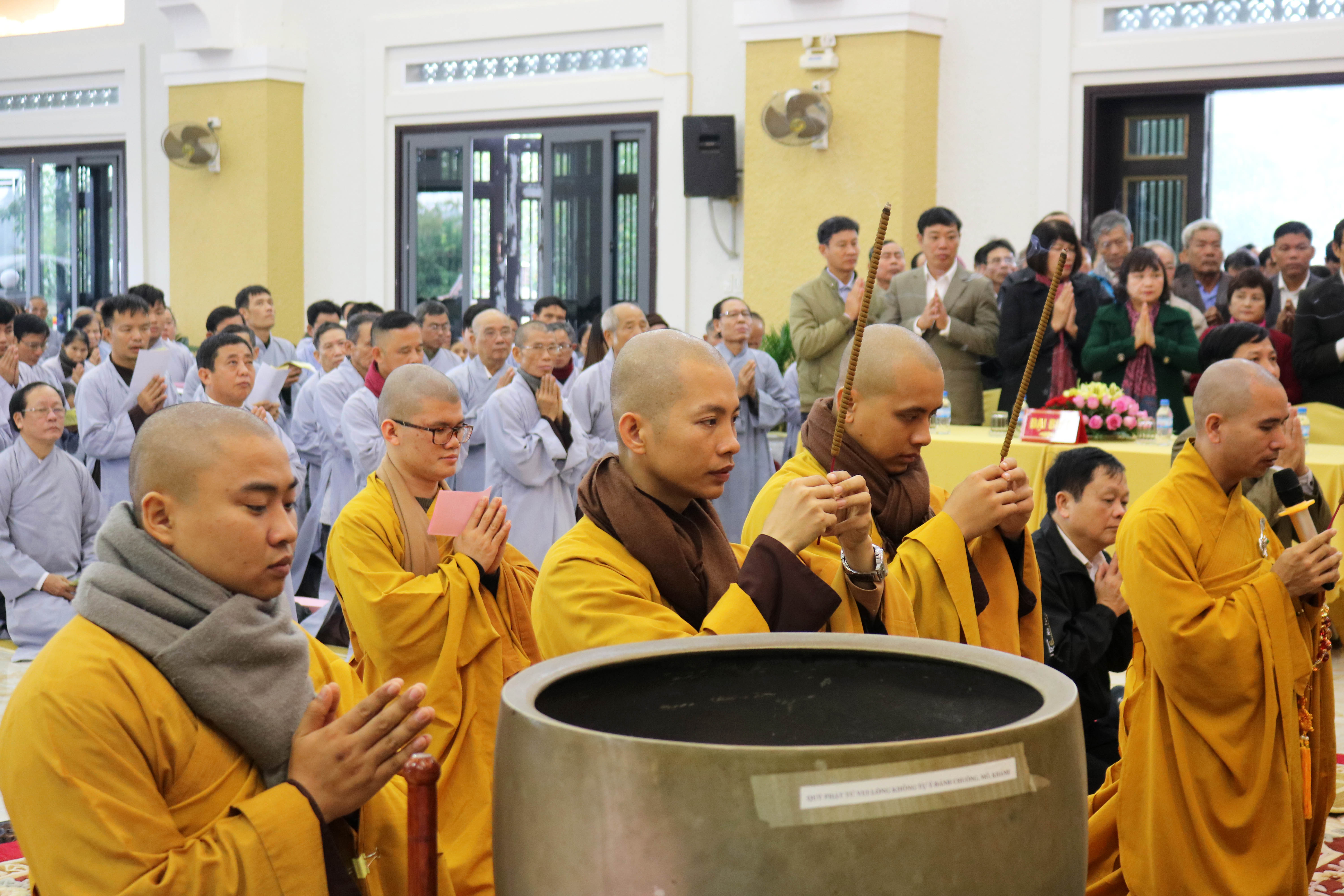 |
| The Buddha's Enlightenment Ceremony at Vien Quang Pagoda in 2018 took place with many spiritual and cultural activities such as: preaching, meditation, chanting the Noble Eightfold Path, chanting the Buddha's Enlightenment Repentance, offering flowers... |
Distinguish clearly between belief and superstition to know what is the right dharma and what is heresy; what is true religious and spiritual activities and what is the act of taking advantage of the ignorance of people with problems in life. Taking advantage of other people's trust to seek material things and money is an act of taking advantage.
For example, during the Vu Lan season, the temple organizes a ceremony to pay respect to the dead so that people can come and chant sutras to pray for the souls of their grandparents and ancestors, then teach morality and advise people to live a filial life, then that is pure belief. But if we focus on the fact that the dead are revengeful, are enemies, and have to spend money to buy peace, if not to get sick, this and that, then it is clearly an act of profiteering.

